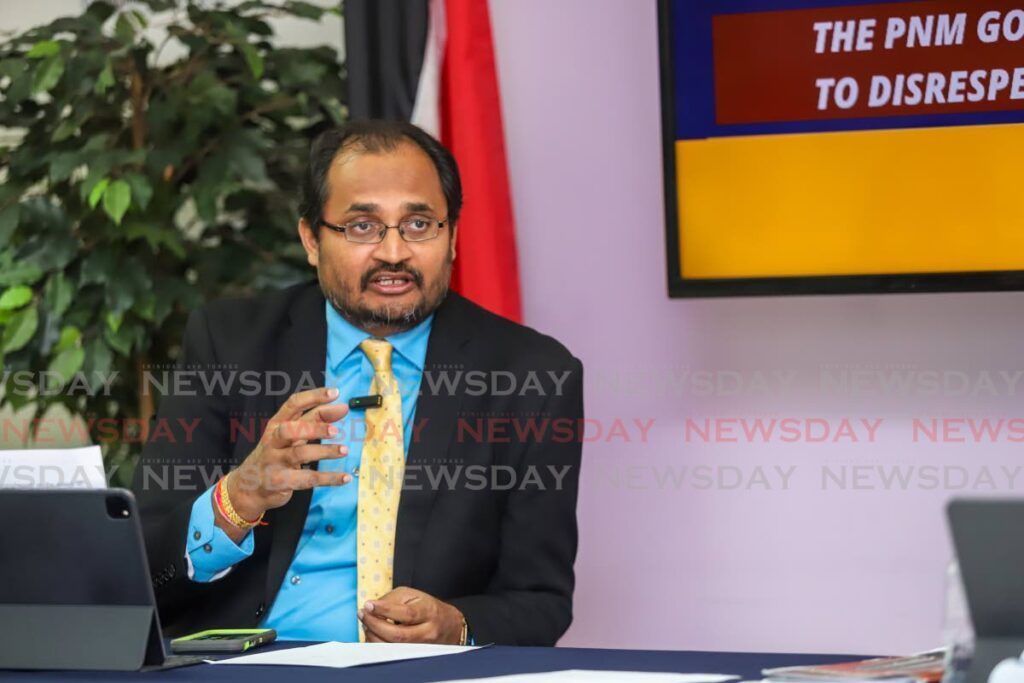Integrity – an elusive notion

DINESH RAMBALLY
IN AN ERA marked by political scandals, fraud in state enterprises and a general erosion of trust in public institutions, the concept of integrity in public life appears to be an increasingly elusive ideal. The Integrity Commission could easily be disbanded. Scepticism abounds, with many asserting that integrity is a rare commodity in the realm of politics and governance. This sentiment raises important questions about the state of public life and the extent to which integrity is genuinely practised by those in positions of power.
One can only imagine how the ordinary citizen would become dismayed when reading the headline of a Sunday newspaper reporting on the legal briefs given to the First Gentleman and all the other trappings bestowed. So far-reaching is the revelation that the writer in a Guardian article dared not put his or her name and instead the author is referred to as “Investigations Desk”.
The question of legal but unethical arises. There is the common view that high-ranking supporters of the government would be rewarded and clearly ethics or perceived ethics is tailored to suit.
Defining integrity
Integrity, in its essence, is the quality of being honest and having strong moral principles. In the context of public life, it extends beyond personal conduct to encompass the transparency, accountability and ethical standards of individuals in positions of authority. The public must demand a premium of our leaders to uphold these values and to serve the greater good rather than personal interests.
Perceived lack of integrity
The prevailing sentiment that integrity in public life is non-existent is fuelled by numerous high-profile scandals, cover-ups and instances of corruption that have come to light in recent years. The political bribery cases and revelations of corporate malfeasance have all contributed to a widespread perception that those in power are more concerned with self-preservation than with serving the public interest. The public purse is not being safeguarded.
When there were accusations against Franklin Khan in the Patrick Manning regime, he had to step aside to clear his name. The late Marlene McDonald was fired to clear her name. But what about PM Rowley who is on his second or third investigation by the Integrity Commission?
Political expediency vs integrity
In the pursuit of electoral victories or policy agendas, politicians seem to find themselves compromising on principles, making it difficult to maintain a stance rooted in integrity. In the current model of governance, political expediency apparently takes precedence. Good optics, good governance, transparency, accountability and responsibility are all mute concepts in the current reality.
Institutional failures:
The erosion of integrity in public life is not solely the fault of individuals; it is often rooted in systemic failures within institutions. Inadequate checks and balances, weak regulatory frameworks and a lack of enforcement mechanisms create an environment conducive to corruption and malfeasance. Strengthening institutions and promoting a culture of accountability are crucial steps in restoring faith in the integrity of public life. Even the recent National Lottery play whe TV fiasco was never fully explained. There are widespread allegations of police renting uniforms and military ammunition continue to be found at crime scenes. No explanation is forthcoming. Silence, after all, is golden.
Role of education and civic engagement
Fostering a culture of integrity in public life requires a multifaceted approach. Education plays a crucial role in instilling values of honesty, responsibility and ethical decision-making from an early age. Additionally, civic engagement empowers the public to hold leaders accountable and demand transparency. By promoting an informed and active citizenry, our society can contribute to the cultivation of integrity within public institutions.
Leadership philosophy
George Orwell’s Animal Farm now appears to be more accurate than the famed fortune teller Nostradamus’s prophecies. Will anything change? What is the philosophy of the current leadership? Is it to “buff,” denigrate, insult and dismiss any other points of view? Is it a democratic autocracy (pardon the oxymoron)? Where is our society heading? How will history judge the current leadership? Is it that the population must just read about these sensational stories and then take an antacid to settle their stomachs? Has the current leadership adopted Marie Antoinette’s philosophy, “If they can’t buy bread then let them eat cake?” Has the leadership wondered what breeds discontent in a society?
Is the current philosophy that a certain minority takes all and the rest of the population must be satisfied with any remaining scraps. Is that the price of a vote?
Conclusion
The assertion that integrity in public life doesn't exist is a sweeping generalisation that oversimplifies a complex issue. Rebuilding trust in public institutions requires a concerted effort in the new year to address systemic issues, promote accountability and celebrate examples of ethical leadership. By doing so we can move beyond the prevailing cynicism and work towards a future where integrity is not the exception but the norm in public life.
But that discussion may not be for the leadership and is better suited for a religious sermon. Because in the current political dispensation, ethics simply doesn’t matter.
Happy New Year to everyone.
Dinesh Rambally is the MP for Chaguanas West


Comments
"Integrity – an elusive notion"